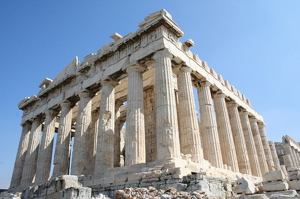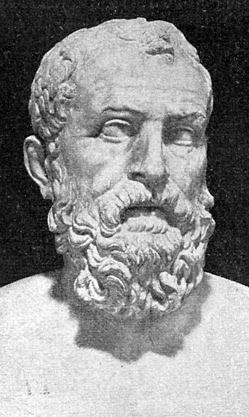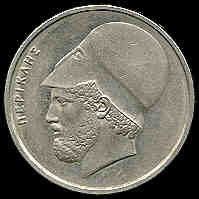Ancient Athens Greece history in 10 easy steps
"Ancient Athens Greece history in 10 easy steps: from prehistoric times, building of the Athens Acropolis to early Middle ages..."
Before you head on your Athens Greece cruise, make sure you brush up on your ancient Athens Greece history knowledge. We have compiled it into these 10 easy to understand steps, which are enough for every Mediterranean cruiser to get a nice overview.
Ancient Athens Greece history: Prehistoric times
1. Archaeological finds show us Athens was first settled almost 7000 years ago, during the Neolithic period. The first settlement was spread over the area of the Athens Acropolis, Agora, the hill of Olympeion and Kerameikon area, which was used for the burial of the dead.
2. Around 1500 BC, inhabitants fell under the influence of the Myceneans, carriers of the Bronze age Greek culture that flourished in the Peloponese.
The settlement of Athens became even bigger and fortified. This is also the first time the first written Greek language was used. The remains of the Mycenean palace are found where today’s Erecheteion stands.
At this time it was clear the Athens Acropolis was the administrative, military and cultural centre. In 1300. King Theseus united all the neighbouring villages and towns of Attica under his leadership.

Ancient Athens Greece history: Dark age (1200-750 BC)
3. Myceneans are overthrown by Dorian invaders. Athens, like many other Bronze Age settlements goes into 150 years of economic decline. This era is marked by wars between different independent towns and villages.
Ancient Athens Greece history: The age of the tyrants (750-528 BC)

4. This period is marked by rivalries between social classes and clans that became too powerful. Their heads, tyrants, tried to seize power by force. This is the time when Athenians assigned Draco to make the first law code and so constrict the power of the aristocratic families.
This is also the time of the famous Solon’s reforms, that were the foundation for Athenian democracy.
Ancient Athens Greece history: The Persian wars (490-479 BC)
5. This time is marked by a series of conflicts between Greek states and the Persian Empire. The story of the Marathon run dates back to these times. Namely, an Athenian messenger ran 42 km (26 miles) from the battlefield by the town of Marathon to Athens to announce the Greek victory and fell dead on the spot.
Ancient Athens Greece history: The time of Pericles

6. After winning the war, Athens entered a period of prosperity on all levels: economical, cultural and political. Under the rule of Pericles, probably the best known Athenian statesman that ever was, democracy was established.
This was also the time when some of the most important figures of Western cultural and intellectual history lived in Athens: Sophocles, Herodotus, Phidias, Socrates and Protagoras, Aeschylus, Euripides, Aristophanes...
During the famous battle of Salamina the Acropolis was destroyed and Pericles decided to rebuild it into an even more glorious city of temples.
Ancient Athens history: Peloponesian War (431-404 BC)
7. Athens is defeated by Spartans and it’s the end of the golden age. The political power falls under Philip the Macedon and his son Alexander the Great.
Ancient Athens history: Roman rule, 2nd Ct. BC
8. The Roman Empire invades Greece and Athens is absorbed into the Roman Republic, although given the status of a free city, due to the Romans respect for Athenian culture. Many Romans settled in the city and built new remarkable buildings.
Ancient Athens history: Christianity
9. In 50 AD The Apostle Paul preached Christianity in Athens. The city enjoys a time of rebirth during the times of Roman emperors Trajan and Hadrian.
Ancient Athens Greece history:Early Middle Ages
10. In the year 267 AD a Germanic tribe Heruli invades the city and raises it to the ground almost entirely. The Athens Acropolis was damaged during this attack.
In 529 AD the Emperor Justinian closed the Athenian schools of philosophy and this is generally taken as the end of ancient Athens history.
RELATED ARTICLES:
OTHER USEFUL LINKS:
From ATHENS GREECE HISTORY to Mediterranean Cruise Ports Easy
HOME PAGE













